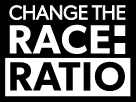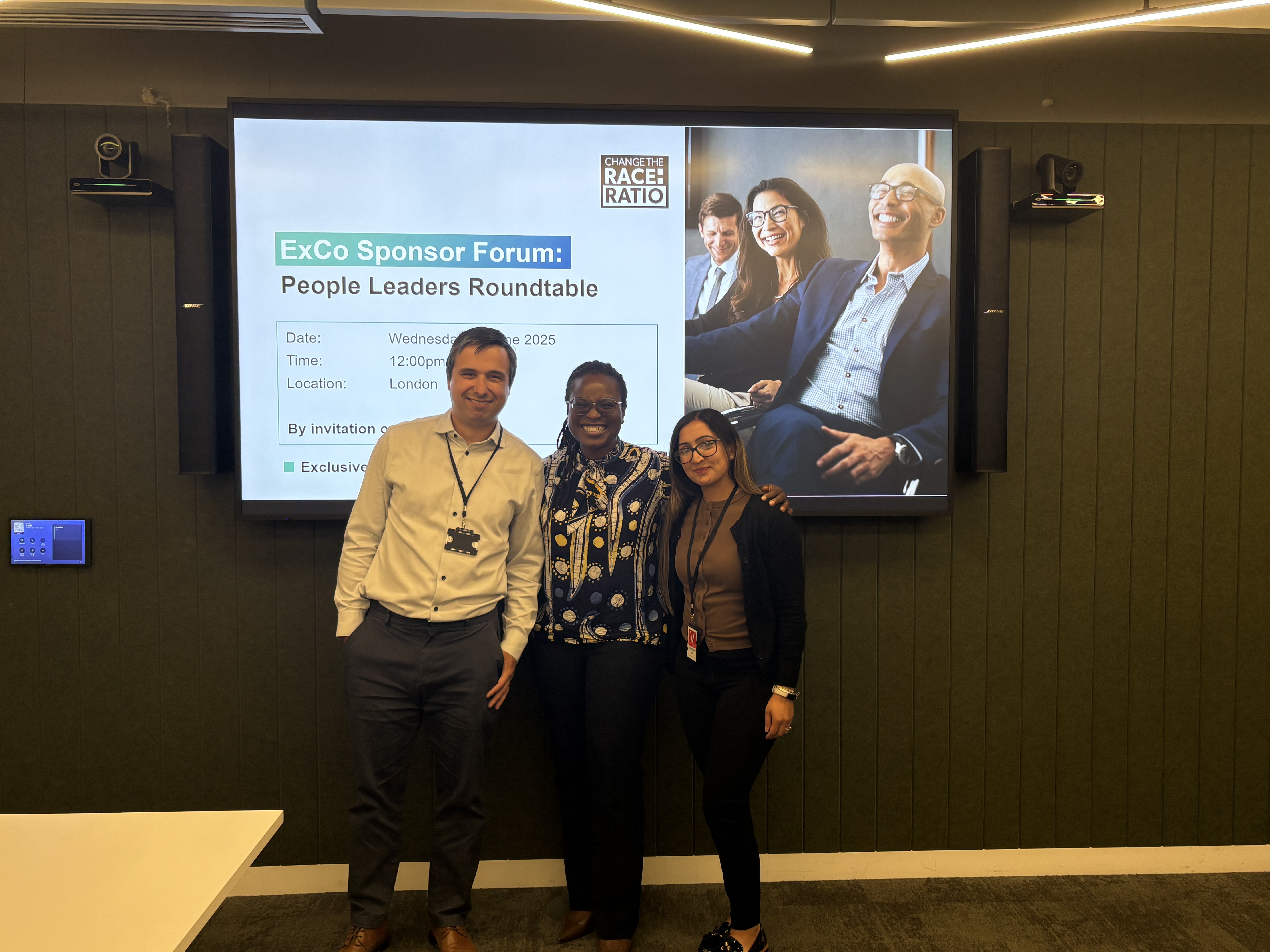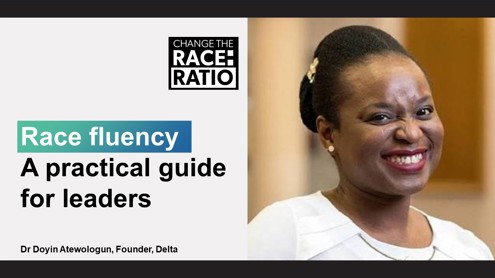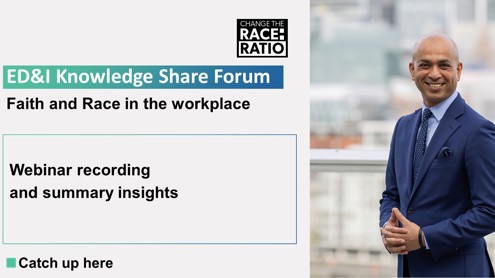We held our Leaders People Forum where our delegates were joined by Dr. Doyin Atewologun, Founder and CEO of Delta, who presented a master class on how to build leadership teams race confidence and fluency providing both research-based evidence as well as practical personal examples.
One of the main reasons holding leaders back from developing greater race confidence and fluency is “the fear of making of making inappropriate statements or being labelled racist”, and so language is seen as a barrier to action. And whilst leaders may not intend to mean harm, they may still cause unintentional upset by not addressing or speaking visibly about race with conviction.
Leaders often want the safety and security of a list of words and phrases they should and shouldn’t say. However, the reality is that language is evolving quickly, lists become obsolete moments after they are published, self-development should be prioritised and in the long-term leads to a more authentic outcome.
To help get leadership buy-in and for the business as a whole to understand the benefits of having a diverse workforce, such as increased productivity and innovation, it's important to embed EDI in your company values, where you can demonstrate right from the start that if someone wants to be part of the organisation they have to understand and uphold the values of the business.
Allyship 2.0: Staying the course in the ‘post-woke’ era
During the recent EDI backlash in the US, allyship in the workplace has become more important than ever. Dr. Doyin’s research shows that creating a fair workplace in which everyone can strive and thrive, is good for everyone – business leaders, team managers and the individual contributor.
In doing so, businesses should understand the difference between performative work and principled allyship. Performative work is where business claim they are supporting race equity in the business, but this isn’t always followed through with meaningful action. Principled allyship involves businesses to invest time, money and build relations to make positive changes, where allyship becomes most affective.
In today’s workplace being an inclusive leader who understands the need to develop an inclusive culture and foster an environment where everyone can thrive isn’t a nice to do, it’s an essential part of the role. Being a leader who’s an ally means you have a nuanced and deep-seated conviction that has inclusive workplace is better for your business, as well as the people who work in it.
So its important to ‘turn up – simple acts of allyship makes a big difference’.
Protective hesitation in crucial conversations
Some leaders are not always comfortable providing honest and constructive feedback especially to underrepresented employees, which can be seen as a contributing factor to slower progression. This type of filtered feedback is referred to as “Protective hesitance”, where leaders may withhold feedback from people different to them, therefore a business needs to create a feedback culture providing training to have these conversations. Here are some tips:
- Be aware of attribution bias
- Check in with yourself
- Be kind, clear, specific and sincere
- Lay your power down
- Foster collaboration & Inclusion
You can find our more information here.
Monitoring employee sentiment in surveys using Employee Resource Groups (ERGs) to gain qualitative feedback
To help with gaining qualitive feedback, businesses are using employee opinion surveys to help understand employee sentiment on a range of issues and how this changes over time. This is important insight to have as leaders often think they are creating an inclusive workplace, but employees’ experiences are not always the same and feel that more can be done. Having consistent and honest feedback helps to create a more inclusive workplace that also reflect the communities they work in.
Leveraging employee resource groups (ERGs) can provide critical insights of the needs and concerns of underrepresented colleagues. Embedding ERGs within governance structures and securing senior leadership sponsorship enables those groups to have greater influence and impact. ERGs can help leaders to better understand the experience of minority colleagues in the workplace, build more diverse networks and develop greater race confidence and fluency.
Overall, leaders have a responsibility to demonstrate that having a workplace that is inclusive is better for your business, as well as the people who work in it.







